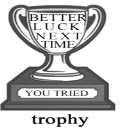题目内容
— That’s very kind ______ you to help me with my English.
— Not at all.
A.for B.of C.to
 天天向上一本好卷系列答案
天天向上一本好卷系列答案 小学生10分钟应用题系列答案
小学生10分钟应用题系列答案书面表达
假设你的好朋友叫Terry,下面是她的信息,请根据所给信息,写一篇短文,介绍一下Terry.
Name | Terry |
Age | 12 |
Birthday | December 25th |
Telephone number | 223-7389 |
Favorite subject | English (interesting) |
Favorite food | bananas, oranges and tomatoes |
Favorite sport | tennis (fun&relaxing) |
注意:
1. 短文须包括以上信息,语句通顺,内容完整,书写工整,可以适当发挥;
2. 文中不得出现真实的人名、校名;
3. 词数:60词左右。(开头已经给出,不计入总词数)
Terry is my good friend. She is a middle school student.
________________________________________________________________________________________________________________________________________________________________________________________________________________________________________________________________________________________________________________________________________________________________________________


